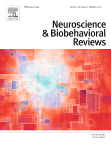 The International Journal of Hydrogen Energy has retracted a paper by a group from Malaysia and India who, reading between the lines, couldn’t quite get the low notes to overcome what the high notes lacked. Or something like that.
The International Journal of Hydrogen Energy has retracted a paper by a group from Malaysia and India who, reading between the lines, couldn’t quite get the low notes to overcome what the high notes lacked. Or something like that.
The paper, “Hydrogen production from sea water using waste aluminium and calcium oxide,” appears to have come out of the quaintly named 7th Petite Workshop on the Defect Chemical Nature of Energy Materials, held in March 2011 in Norway.
According to the notice: Continue reading Hydrogen study has “merit” — just not enough to avoid retraction







